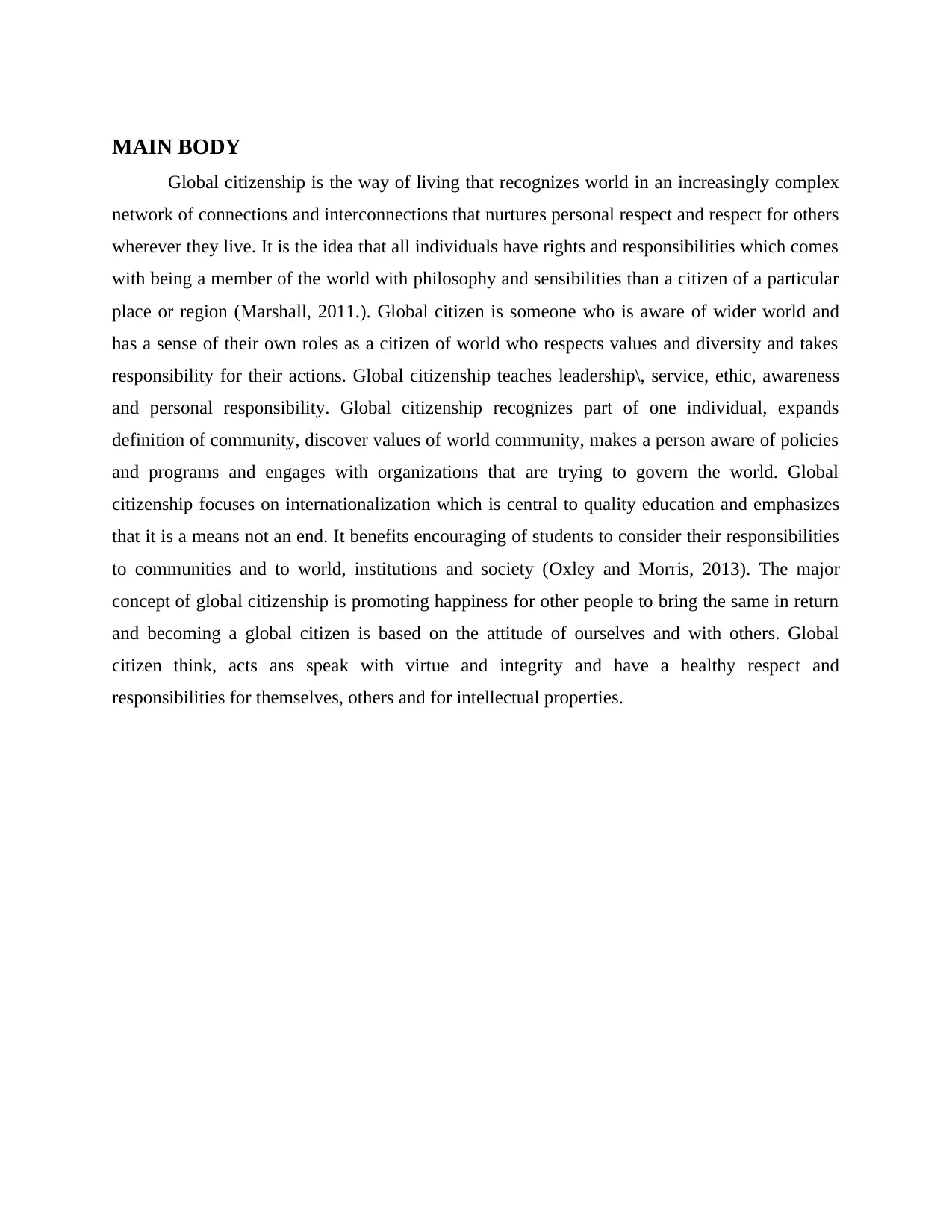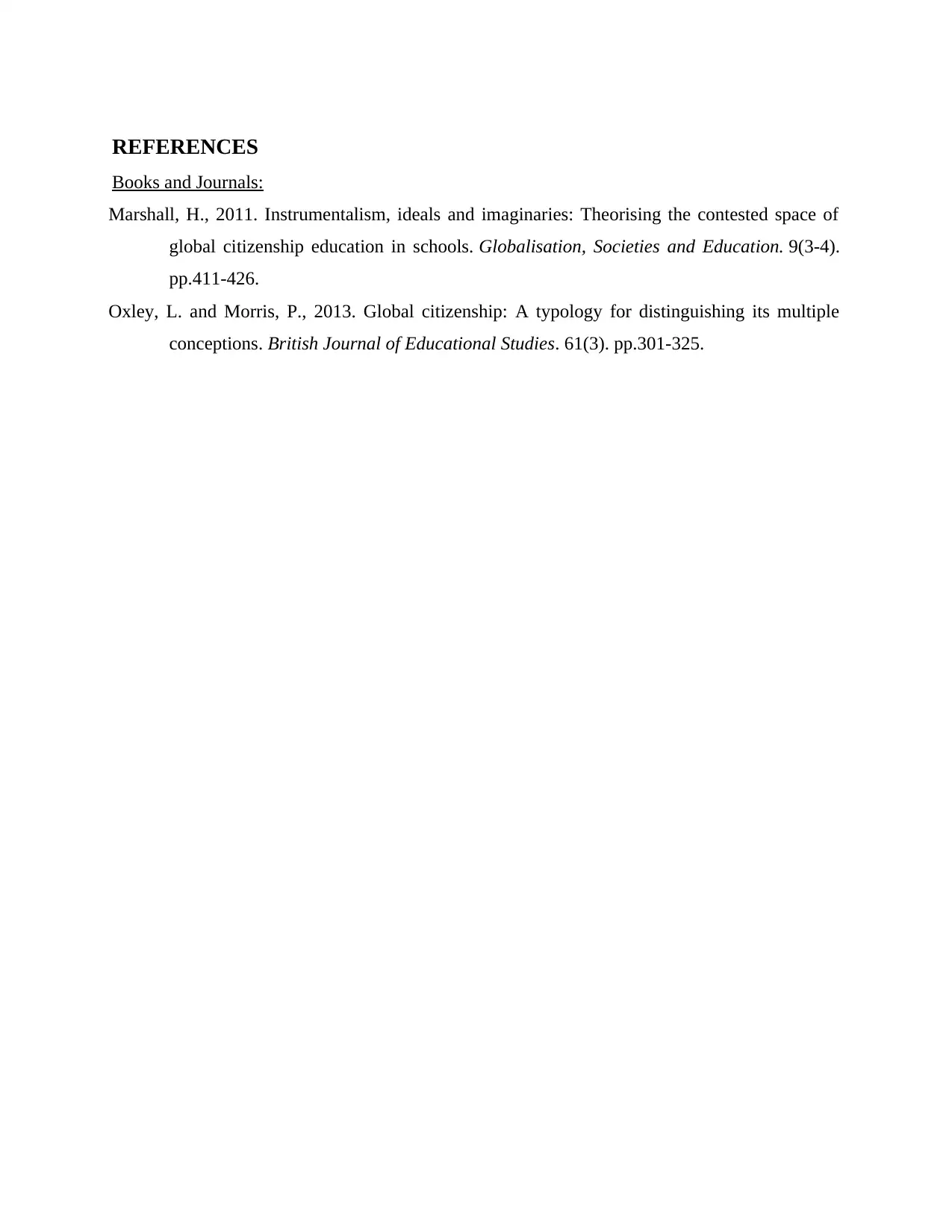Global Citizenship: Analyzing Concepts, Theories, and Implications
VerifiedAdded on 2020/10/22
|4
|360
|53
Report
AI Summary
This report provides an overview of global citizenship, exploring its core concepts and implications. It defines a global citizen as someone aware of the wider world, respecting diversity and taking responsibility for their actions. The report emphasizes the importance of global citizenship in education, focusing on internationalization and encouraging students to consider their responsibilities to communities and the world. It also highlights the significance of ethical behavior, respect, and understanding in fostering a global community. The report references key publications and research to support its arguments, covering concepts such as rights and responsibilities, the role of community, and the impact of global citizenship on education and society. The report emphasizes that global citizenship focuses on internationalization which is central to quality education and emphasizes that it is a means not an end. It benefits encouraging of students to consider their responsibilities to communities and to world, institutions and society (Oxley and Morris, 2013). The major concept of global citizenship is promoting happiness for other people to bring the same in return and becoming a global citizen is based on the attitude of ourselves and with others.
1 out of 4










![[object Object]](/_next/static/media/star-bottom.7253800d.svg)